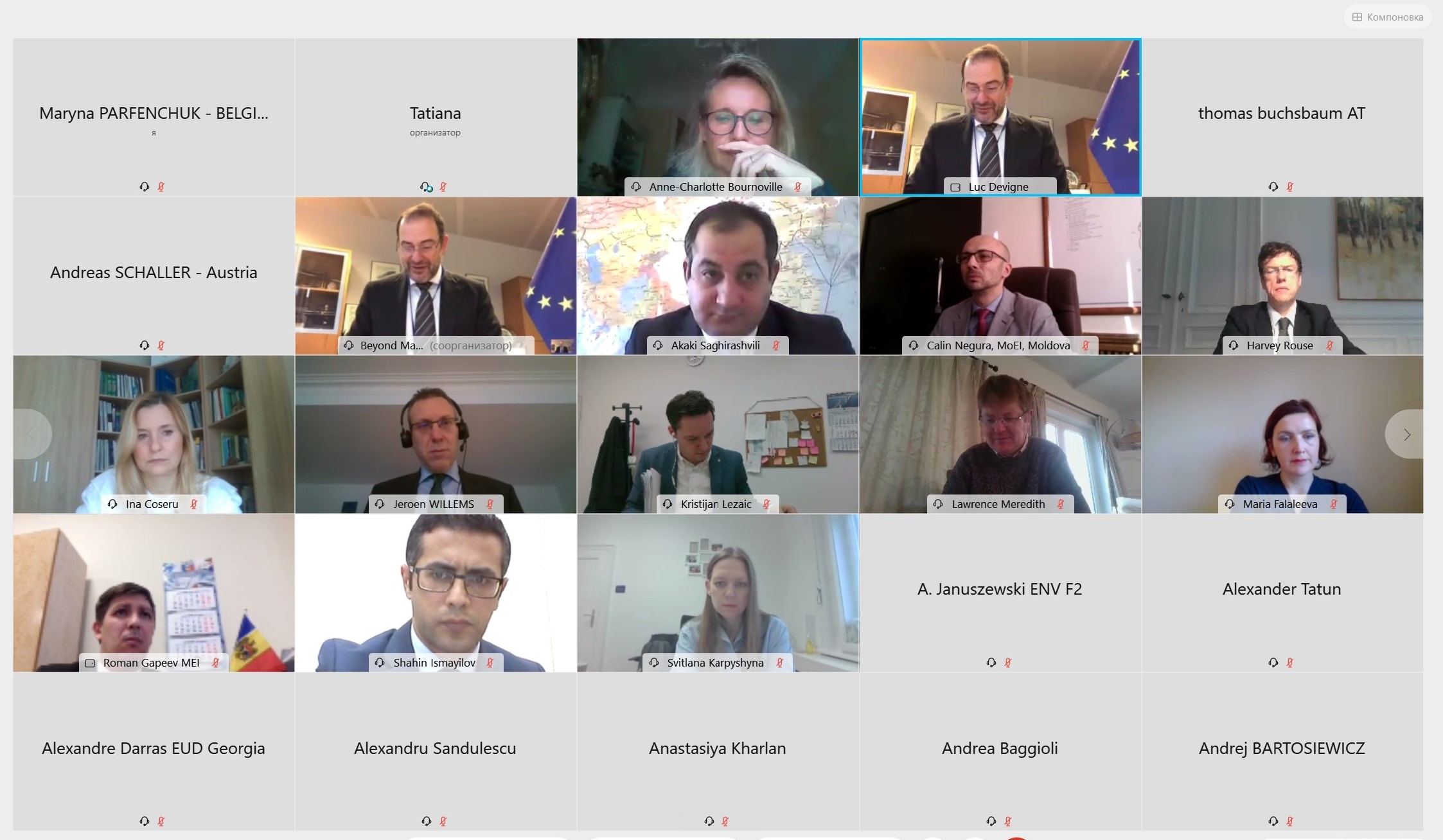Brussels, 26 November 2020
Platform 3 – Priorities beyond 2020
EaP CSF representatives Tania Marocchi (EaP CSF Secretariat), Artashes Sargsyan (Chairman, NGO ECOTEAM – Energy and Environment Consulting, Armenia), Ruslan Havryliuk (Executive Director, National Ecological Centre, Ukraine) and Maria Falaleeva (Chair of the Board, EKAPRAEKT, Belarus) advocated to improve the EaP-EU efforts to preserve natural capital in the new generation of post-2020 deliverables during the Platform 3 meeting.
Reinforcing resilience and cooperation throughout the five areas of transport, energy and interconnectivity, environment, climate change and sustainable finance are among the new priorities of the EU-EaP relations within the Platform 3.
Concerning sustainable transport connectivity, current challenges include the availability and transparency of information in connection to the TEN-T infrastructure and development. It is particularly necessary to strengthen the institutional framework of the EaP countries regarding road safety. Namely, road lead agencies and road safety funds should be established and legislative amendments should be promoted.
Civil society has also stressed the importance of extending the functions of the regional road safety observatories and broadening their scope of work to include the data collection of road incidents, road crash investigations, and the monitoring of the usage of child booster seats and mobile phones when driving.
EaP governments continuously struggle to implement the targets and plans of reduction of green gas emissions, energy security, interconnectivity, and environmental preservation. EaP CSF representative Artashes Sargsyan highlighted the lack of indicators of shared deliverables and the need to raise public awareness.
EaP CSF speaker Ruslan Gavryliuk deplored the poor level of achievement and weak progress in areas of air quality, green areas development and municipal transport reform in the EaP countries. The absence of access to environmental information constitutes a serious problem.
The insufficiency of systemic solutions within the circular economy efforts in the EaP countries such as inadequate progress in farming reforms, water management, trans-river management, Black Sea pollution reduction and protective areas construction were linked to the deeper societal inequalities in the region such as poverty.
Civil society representative Maria Falaleeva called for a stronger collaboration with civil society in order to strengthen long term resilience. Also, the environmental protection must be taken more seriously by the EaP governments. Namely, disaster risk reduction should be included in national policies and the targets for the EaP region must be coordinated with the European standards.
The contributions of the EaP CSF representatives helped formulate the priorities for the post-2020 deliverables and will guide the EaP countries towards closer cooperation and deeper knowledge exchange on environmental governance issues, climate change, energy security and green economy.


